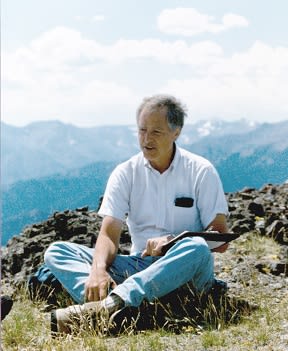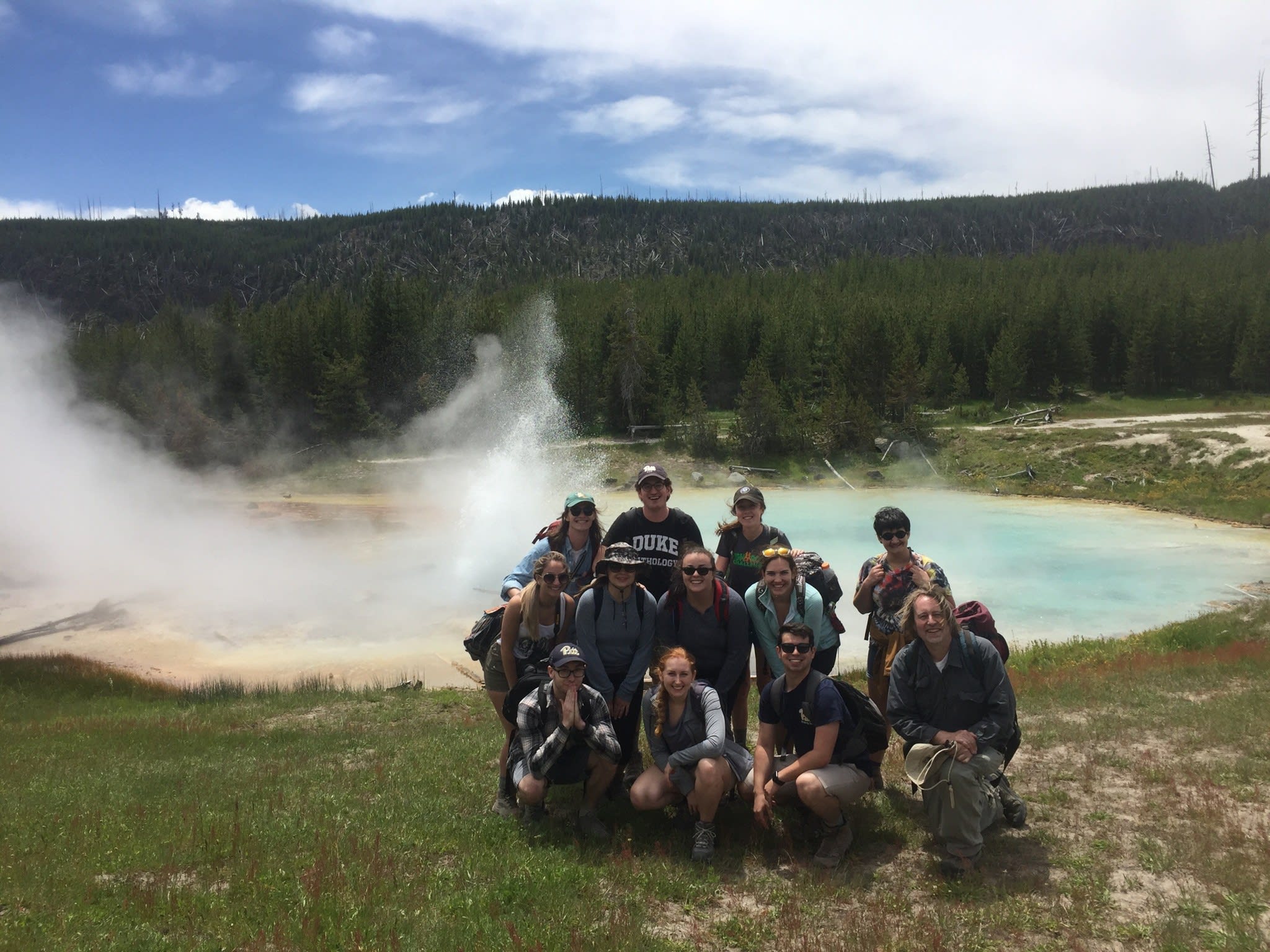
Although this campaign has concluded, if you would still like to make a donation to support the Dr. Harry O. Corwin Experiential Learning Fund, you may always do so here.
Dr. Harry O. Corwin Experiential Learning Fund
Dr. Harry O. Corwin Experiential Learning Fund
The Dr. Harry O. Corwin Experiential Learning Fund carries on the legacy of the late Harry Corwin, one of the University of Pittsburgh Honors College’s most inspirational advocates and leaders.
Harry was a biology professor with a deep appreciation for nature. He founded a groundbreaking Yellowstone Field Program for the Honors College, and was also the natural choice to serve as our interim Dean for a year during founding Dean Alec Stewart’s leave.
When he passed away in February 2018, Honors College alum Gail Simmons established a fund in his honor to ensure that his rich legacy of inspiring students lives on.
Yellowstone Course
Harry adored the outdoors, and he was always eager to talk biology and nature. He channeled his passions into establishing a rigorous interdisciplinary Honors College Field Program in Yellowstone National Park.
The field program was a dream come true for Harry. It let him share his love for his favorite things: wonder for the natural world, academic rigor, interdisciplinary education, and stellar fly-fishing.
His program draws students into one of the most vibrant, diverse, and awe-inspiring landscapes in the country. Here, in a living, thriving laboratory, students can see firsthand the natural beauty and mystery that fascinated Harry. Despite very long days, students and instructors alike reveled in the experience from day 1 when the program launched in 1990.

The unique Yellowstone experience gives students another important advantage: it opens them up to new understanding. Harry’s carefully crafted program brings together vastly different academic lenses: the geological, the biological, and the political.
That was vital to Harry. He believed different, even disparate perspectives always enriched learning. He crossed boundaries in his own curriculum, often co-teaching with professors from other sciences or the humanities. He exemplified a core, founding virtue of Pitt Honors: intellectual curiosity. That’s how he guided the students who saw him as a mentor, and it’s how his field course continues to shape young minds today.
Harry led his field program until he retired in 1998, and it is still a student favorite — and a formative experience. Several careers have budded right there on K-Z Guest Ranch.
Harry’s Yellowstone course is education at its peak: informative, impactful, challenging, thought-provoking, motivating, enlightening, and inspiring — all qualities, not surprisingly, that Harry himself embodied.
 Impact Students
Impact Students
You can give a student the chance to see the world through Harry’s eyes, right now. A gift of any size will give more curious young minds the chance of a lifetime.
We are enormously grateful to donors like you, who help us carry on the legacies of transformational teachers like Harry. It truly makes this unparalleled opportunity possible for our students.
Dedicate Your Gift
Take a moment to think about who has impacted your life …
- A mentor like Harry who believed in you, no matter what
- A parent, family member, friend or teacher who helped you unlock your own potential
- A son or daughter who inspires you every day with the strength of their dreams
Share the gift of opportunity and knowledge on their behalf! It’s a powerful way to pass your appreciation forward.
Spread the Word
Did you know others who knew Harry? Or who want to share the wonders of nature and science with the next generation?
Please share about this fund on your social networks, so more students get the chance to experience this once-in-a-lifetime program.
Connect with Us:
Facebook - https://www.facebook.com/PittHonors/?ref=br_rs
Honors College E-News - https://www.honorscollege.pitt.edu/connect-honors-college
Instagram - https://www.instagram.com/pitthonors/
Questions about this fund? Want to chat about other gift opportunities to uplift students? Contact Clare Stich at ces84@pitt.edu or 412-624-8633.
$50
Bear Spray
Bear Spray is necessary in the event that a furry friend gets too close for comfort. $50 will buy students a large canister of spray - let’s just hope that nobody gets accidentally sprayed -this- year!
$150
Fly Fishing Rod
Fly fishing was one of Harry’s favorite pastimes and a skill that he happily taught to those wishing to learn it. A gift of $150 will fund student equipment such as fly fishing rods.
$200
Yellowstone Animals
More than 200 species of animals, including bears, bald eagles, bison, wolves, elk, and nearly 60 other species of mammals, make their homes in Yellowstone National Park. These are complemented by more than 300 species of birds, sixteen species of fish, six species of reptiles, and four species of amphibians.
$303
303 Students
303 students representing the full spectrum of majors have participated in the Yellowstone Field Course
$600
Yellowstone Grizzly Bear
There are two species of bear that live in in Yellowstone National Park: the black bear, and the grizzly or brown bear. Weighing in from 325 to 600 pounds (and occasionally more!), the grizzly is significantly larger than its counterpart
$1,000
1,000 Laughs
“Harry would stop us periodically to talk about animal tracks, scat identification, population ecology. At one point he reached down and picked up what he had identified as elk droppings and popped one in his mouth to audible gasps from the group. Turns out he had dropped some milk duds on the ground first… The idea that he had a sense of humor was shocking. I got to know him more closely over the years as part of the family, but even to this day feel that there's a lot more going on inside than he ever lets show." Rick Dunn - former student and Dr. Corwin’s son-in-law





